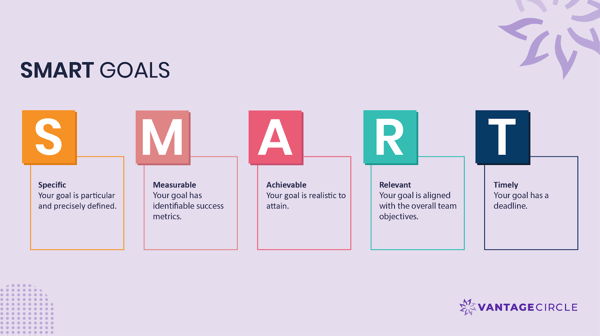July 11, 2025
 by Susmita Sarma / July 11, 2025
by Susmita Sarma / July 11, 2025

What’s the difference between a high-performing team and one that constantly drops the ball? One word: accountability.
Accountability in the workplace is more than just meeting deadlines; it’s a cultural mindset. When team members own their responsibilities, communicate openly, and course-correct without prompting, trust becomes the default, and collaboration thrives. It’s not about assigning blame; it’s about showing up, following through, and helping others do the same.
Accountability in the workplace means employees take ownership of their tasks, meet deadlines, and accept responsibility for outcomes. It includes acknowledging mistakes, following through on commitments, and being answerable to supervisors and team members.
Workplace accountability enables high-performing teams to eliminate surprises, build trust, and cultivate strong working relationships.
To support this, tools like workforce management software can be invaluable for HR professionals. These tools help create workforce efficiency reports and provide deeper insights into people issues, further promoting a culture of accountability within the organization.
A workplace without accountability suffers from an accountability gap – a situation where people don’t do what they should be doing. As a result, you see unmet expectations, bad behavior, and broken commitments.
Employee accountability refers to several different characteristics.
In reality, accountability at work is all of the above, which runs like a machine. However, if the employees do not have accountability mechanisms in place, things quickly fall apart. To avoid this, every employee should be accountable for their own actions at work. It builds confidence within teams and organizations because people know they can depend on one another.
Accountable leaders are more likely to be trusted and respected since people know they keep their promises. Personal accountability can also save both time and money. People with accountability take a stand when there is a problem and search for solutions. It keeps the problem from worsening, but it also avoids extra costs and delays. On the contrary, unaccountable employees don't contribute to team success and can provide an inaccurate image of the organization.
A lack of accountability at work results in missed deadlines, unfinished work, and intra-team disengagement. When no one takes responsibility to make decisions and get things done, you’re likely to see:
Lack of accountability comes at a high cost. Before you think about embedding accountability in the workplace, let’s see how you can demonstrate accountability.
High-performing teams create a culture of accountability by communicating openly, sharing progress reports, being proactive, and showing commitment to work. They conduct weekly meetings to learn what team members are working on, see if they need something from the team, and ask if the team needs anything from them.
Here are key ways to consistently demonstrate accountability in the workplace:
Tip: Accountability thrives when it’s visible. Use performance management software to align goals, track progress, and maintain transparency across the team.
Accountability also manifests in the small, everyday behaviors that build team trust over time. These micro-moments often go unnoticed, but together, they shape a culture of follow-through, ownership, and reliability.
If you're looking to lead by example, here are a few additional ways to demonstrate accountability in your day-to-day workflow:
You can’t expect your employees to be accountable without giving them guidelines on approaching situations in which accountability is needed.
Before we get into the details, here’s a breakdown of the most common accountability blockers and how to address them.
| Problem | Why it happens | How to fix it |
| Missed deadlines | Unclear expectations or shifting priorities | Set SMART goals with clear deadlines and scope |
| Avoiding ownership | Fear of blame or negative consequences | Normalize mistake ownership through psychological safety |
| Finger-pointing | Ambiguous roles and vague accountability lines | Clarify responsibilities and document ownership upfront |
| Repeating mistakes | Lack of feedback or coaching after setbacks | Hold regular retrospectives and give actionable feedback |
| Low engagement | Disconnected goals or a “why does it matter?” mindset | Align individual goals with team outcomes and recognize wins |
Most managers have to deal with poor employee performance at some point. Discussing poor or failing performance can be confrontational, but it has to be dealt with as quickly as possible. If you don't, it will result in significant issues. You need to understand the root cause before you can repair bad results. You must understand whether it is because of a lack of ability or low motivation.
Incorrect diagnosis of performance issues can potentially lead to several problems. If you think an employee doesn't make enough effort, you'll probably place added pressure on them to succeed. However, if the actual problem is capability, then heightened stress will only make this situation worse. This is where your leadership qualities will matter.
One thing that should be highly considered here is written communication. It will help employees know what is expected and make them feel more accountable for their roles. As such, they won’t be able to make excuses for not knowing or understanding anything.
Goal-setting is the most important factor for fostering an environment that encourages accountability. You probably need to redefine your goals if you encounter a persistent lack of accountability at work.
Developing SMART goals can help to aim for realistic goals tied to specific business metrics that set a clear line for success. It allows people to understand their areas of responsibility and the work they need to contribute to the company-wide objectives. While setting goals, it’s also important to understand what is not a priority. Too many tasks will reduce productivity and accountability. Thus, make sure the expectations you set are achievable.

Accountability needs a structure for all open-ended tasks; otherwise, there will be no accountability for deadlines that don't exist. So, be clear when a job or deliverable is due, and set up notifications to remind team members when deadlines are coming.
Before you set these alerts, be sure to discuss them with the team and get their feedback about this system. Answer all of their questions to help them understand the process. This will help you avoid the impression that you're always looking over their shoulders.
Employees who receive the necessary training and learning breaks are more able to carry out their duties. Organizations need to provide employees with opportunities to strengthen, grow, and change through interactions between managers and workers or as part of an ongoing growth course.
Millennial employees highly consider the ability to learn and develop in their job above all other criteria. It helps them overcome the hurdles that hinder their ability, improve their understanding of their duties, and create trust. Besides, learning makes employees competent enough to adapt to changing industry standards, helping them hold a leading position in the industry.
So many managers prefer it, but don't do it. You should immediately put a follow-up on your calendar after you have completed a meeting with your team and ask them to do the same. If you don't check it up, it gives out the wrong message and seems like it doesn't matter what they're working on.
While reaching out, make sure that you contact the right person in the first place, that is, someone who has decision-making control for your team. Also, your follow-ups should maintain regular consistency for maximum results.
To improve employee accountability, you, as a manager, must improve your 360-degree feedback skills. It is one of the most efficient ways to foster a culture of accountability – or, if the damage has already been done, address a lack of accountability. Of course, it's not easy to give challenging feedback, but you have to get better at it.
When you give feedback regularly, it is much easier to give and receive harsh feedback. It also reduces the likelihood of your direct report being surprised by the feedback they're receiving (which often leads to disengagement).
Your feedback should be clear, direct, and unambiguous. To make accountability a habit, here are a few questions that you can put forward to your direct reports:
Because merely giving feedback to employees isn't enough. Maintaining open and flexible employee relations will make them feel comfortable talking about your performance candidly with you.
As such, you will be able to understand the employee behaviors, spot negative habits, anticipate problems within the team, and know what they expect from you as their leader. Not being immune to criticism makes this a one-sided situation and discourages the employees from taking feedback seriously. Thus, it can be said that accountable leaders should seek feedback from the employees because feedback creates responsible people.
Employees are expected to behave accordingly in a given role or work environment. However, many times, they fail to understand the impact of their behavior on their team. As a manager, you should be kind enough to find out the root cause of their problem and understand what motivates them. It will help mitigate issues long before they arise.
Suppose one of your employees’ children is sick, so the employee requests a more flexible work schedule. You should be able to find a solution based on the employee’s status and your business’ policies.
You could offer them a work-from-home opportunity to supplement their situation. This kind of consideration can immediately improve employee morale and keep them more dedicated to their work and company.
Leaders hesitate to engage in challenging conversations as they are unsure how to approach their employees. Sometimes, they are worried the talk won't go well, and the workers get upset. The concern is reasonable.
Some employees don't like being told they make bad decisions or underperform. They don't want to realize how their behavior affects their co-workers. But if you're going to make your employees feel accountable for their performances and committed to achieving their objectives, you have to break the silence.
Make your conversation an open dialogue to support your case with proven facts and data. But to make it sound more logical, take a moment and listen to their side of the story.
The discussion should always end on a positive note. It will help them to feel that they can do better. You should review the situation once it has begun to resolve or improve. However, such conversations should always be kept confidential between you and that particular employee.
Developing a situation of fear will give you success in the short term, but it will not establish long-term accountability. If employees are afraid of their managers' criticism, they will hardly look for any support when needed.
As a result, they will tend to quit your team. Be sure to recognize the good things that your employees do. Continuous criticism can make them feel exhausted and frustrated. Nothing can get better if you can lead them by your example. Learn to admit your own mistakes and, in doing so, explain what you have learned to your team for future reference.
Management should provide the resources necessary for employees to carry out their tasks. Employees may complain about a lack of work arrangements when asked to fulfill their duties and meet goals without getting the proper resources.
Without adequate resources, your employees are more likely to blame the organization rather than keep themselves accountable.
Regardless of your company's size, technology has both tangible and intangible benefits that will help you stand out in the market, earn profit, and deliver customer-oriented results. Technological advancement affects a company's culture, performance, and relationships. It also helps protect sensitive information and boosts communication with stakeholders.
Technological disruptions have primarily affected the way businesses are operated today. Every sector of the economy has seen technology take over traditional business processes. Staying updated about state-of-the-art technologies trending in the sector can boost the accountability of employees and the organization in general.
An organization that can search for new opportunities will remain a step ahead of its competition. So, it is of utmost importance for every employee to keep themselves abreast of the latest trends in the market and adopt and innovate new technologies to outgrow their competitors strategically.
Got more questions? We have the answers.
Examples include completing tasks by the agreed deadline, owning mistakes and proposing solutions, supporting teammates during crunch time, and showing up to meetings prepared and engaged.
Look for behavioral signals: Are people following through on commitments without reminders? Do they proactively flag issues? Are deadlines consistently met? You can also track accountability through project velocity, ownership logs, and recurring feedback loops.
Absolutely. Without in-person visibility, remote teams need to rely more on clear documentation, async check-ins, and defined ownership. Tools that track deliverables and communication (like project management software) are especially important.
Begin by setting the tone. Be transparent, consistent, and open to feedback. Focus on clarity: define expectations, co-create team norms, and follow through on what you say. Accountability starts with leadership behavior, not policies.
Accountability can absolutely be developed. With the right environment, clear goals, consistent feedback, and visible consequences, even less naturally accountable employees can build the habit of ownership over time.
Accountability isn’t about blame. It’s about clarity, ownership, and trust. When employees know what’s expected, have the tools to deliver, and work in an environment that rewards follow-through, accountability becomes part of the culture, not a top-down demand.
Leaders can’t force responsibility. But they can create the conditions that make it natural: clear goals, regular check-ins, open communication, and access to the right resources.
The payoff? A team that’s more engaged, more dependable, and more aligned, even in high-pressure environments.
Keep the momentum going. Check out the 10 best employee recognition software to celebrate accountability and build lasting team engagement.
This article was originally published in 2024. It has been updated with new information.
Susmita Sarma is a digital marketer at Vantage Circle. She was involved with media relations before shifting her interest in research and creative writing. Apart from being a classical music buff, she keeps a keen interest in anchoring.
Picture this — you’re running a small business with big ambitions but not much extra cash to...
 by Erin Keefe
by Erin Keefe
Suppose you are receiving invoices from various suppliers and see that your purchase order...
.jpeg) by Marissa Levin
by Marissa Levin
The world has gone hybrid.
 by Dayana Mayfield
by Dayana Mayfield
Picture this — you’re running a small business with big ambitions but not much extra cash to...
 by Erin Keefe
by Erin Keefe
Suppose you are receiving invoices from various suppliers and see that your purchase order...
.jpeg) by Marissa Levin
by Marissa Levin


